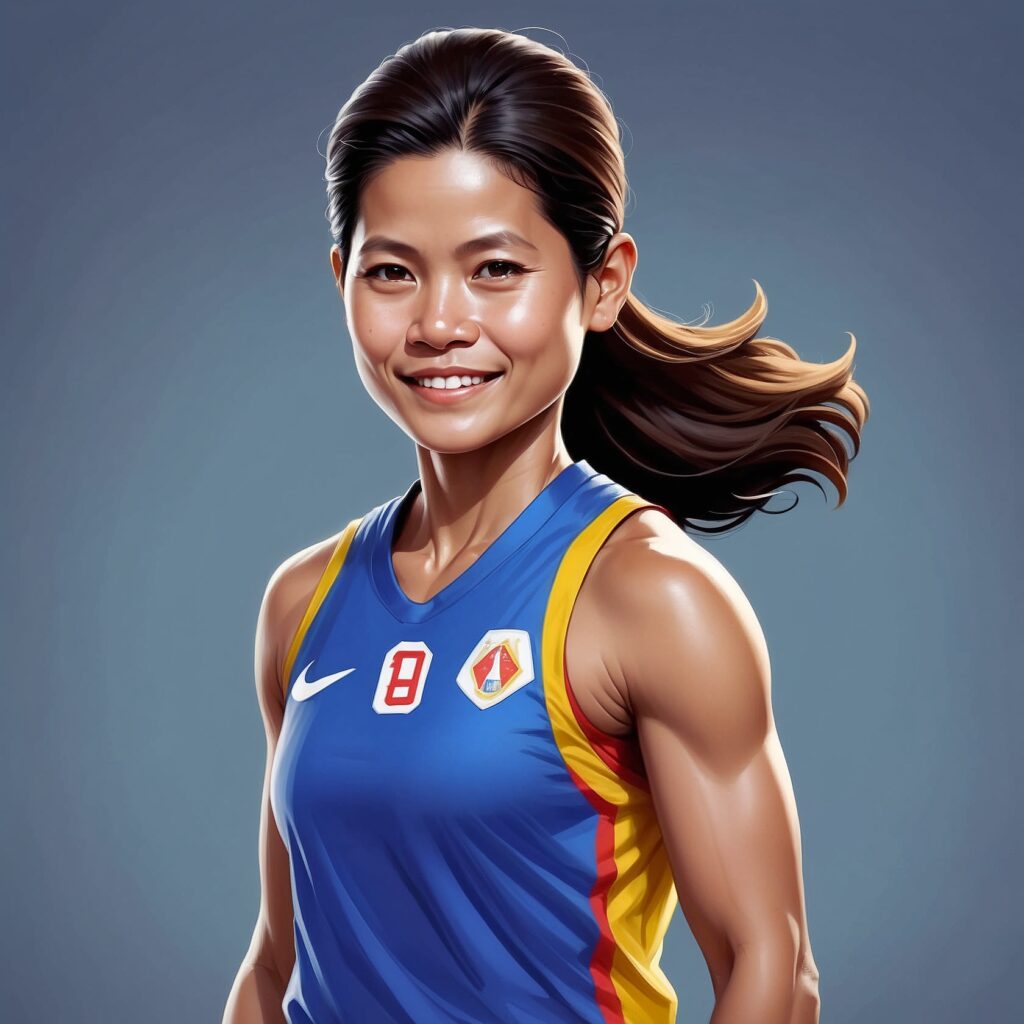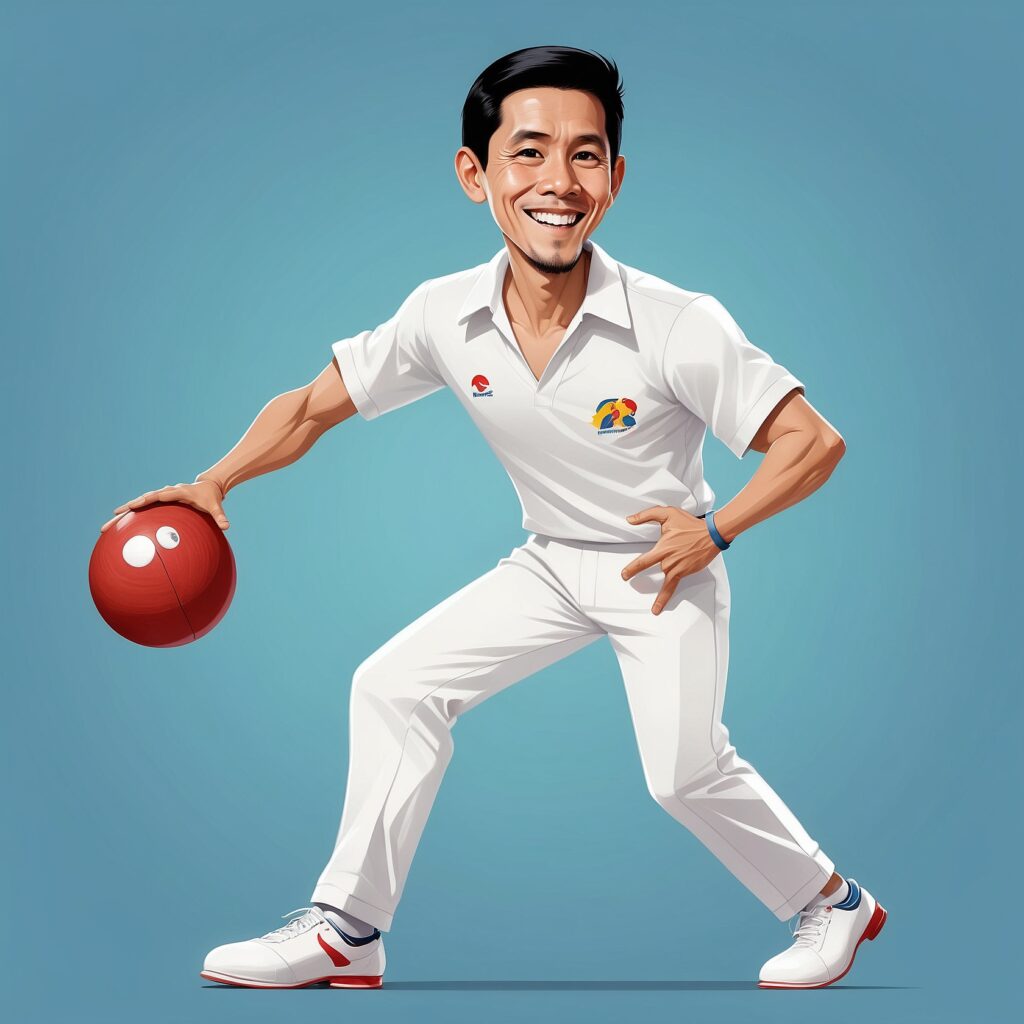Lydia de Vega, a name synonymous with speed and athleticism, was a Filipina track and field legend who reigned supreme as “Asia’s Sprint Queen” throughout the 1980s. Her remarkable career, punctuated by record-breaking performances and captivating victories, left an indelible mark on the sport and inspired a generation of aspiring athletes. Join us as we delve into the extraordinary journey of this iconic sportswoman, reliving her triumphs, and celebrating her enduring legacy.
Early Life and Introduction to Athletics
Born Lydia de Vega-Mercado on December 26, 1964, in Meycauayan, Bulacan, Philippines, Lydia’s athletic prowess was evident from a young age. Her father, Francisco de Vega, a former athlete himself, recognized her potential and nurtured her talent. Lydia’s sprinting journey began at the tender age of 12 when she started training under the guidance of her father and other renowned coaches.
Rise to Fame and Dominance in the 1980s
Lydia’s meteoric rise to fame commenced in the early 1980s when she burst onto the international athletics scene with a series of impressive performances. In 1981, at the tender age of 16, she clinched two gold medals at the Southeast Asian Games in Manila, Philippines, marking the beginning of her reign as the region’s sprint queen.
Her dominance continued throughout the decade, with Lydia consistently outperforming her rivals in various regional and international competitions. She secured consecutive gold medals in the 100-meter dash at the Asian Athletics Championships in 1983 and 1987, solidifying her status as Asia’s fastest woman.
Southeast Asian Games Triumphs and Record-Breaking Feats
Lydia’s unparalleled success at the Southeast Asian Games (SEA Games) further cemented her legendary status. She achieved an extraordinary feat by winning nine gold medals in the 100-meter dash across multiple editions of the Games, a testament to her sustained excellence and unwavering determination. Her record-breaking performances shattered national and regional records, setting new standards for aspiring athletes.
| SEA Games | Year | Event | Time | Record |
|---|---|---|---|---|
| 1981 Manila | 1981 | 100 meters | 11.46 seconds | National Record |
| 1981 Manila | 1981 | 200 meters | 23.07 seconds | National Record |
| 1983 Singapore | 1983 | 100 meters | 11.61 seconds | – |
| 1983 Singapore | 1983 | 200 meters | 23.39 seconds | – |
| 1987 Jakarta | 1987 | 100 meters | 11.43 seconds | – |
| 1987 Jakarta | 1987 | 200 meters | 23.35 seconds | – |
| 1991 Manila | 1991 | 100 meters | 11.28 seconds | SEA Games Record |
| 1993 Singapore | 1993 | 100 meters | 11.80 seconds | – |
Source: Lydia de Vega – Olympedia
Olympic Appearances and International Recognition
Lydia’s exceptional talent earned her the honor of representing the Philippines at the Olympic Games, the pinnacle of athletic competition. She participated in the 1984 Los Angeles Olympics and the 1988 Seoul Olympics, showcasing her skills on the world’s biggest sporting stage. While she didn’t secure a medal at the Olympics, her participation inspired countless Filipinos and solidified her position as a national icon.
Beyond the Olympics, Lydia’s achievements garnered international recognition. She was bestowed with the prestigious “Athlete of the Year” award by the Philippine Sportswriters Association (PSA) on multiple occasions, a testament to her remarkable contributions to Philippine sports.
Impact on Athletics and Legacy
Lydia de Vega’s impact on athletics in the Philippines and beyond is immeasurable. Her remarkable achievements shattered stereotypes and proved that Asian athletes could compete at the highest level on the global stage. She inspired a generation of young athletes, particularly women, to pursue their sporting dreams and strive for excellence.
Even after her retirement from active competition, Lydia remained a beloved figure in the Philippine sports community. She served as a coach and mentor, sharing her knowledge and experience with aspiring athletes. Her legacy continues to inspire and motivate, serving as a reminder of the power of dedication, perseverance, and unwavering belief in oneself.
Beyond the Track: Lydia’s Personal Life and Battle with Cancer
Away from the track, Lydia was a loving wife and mother. She married Paul Mercado, a former engineer, and they had five children together. In 2018, Lydia was diagnosed with breast cancer, and she bravely fought the disease for several years. Sadly, on August 10, 2022, at the age of 57, Lydia de Vega passed away, leaving behind a void in the hearts of many.
Lydia’s passing was met with an outpouring of grief and tributes from across the Philippines and the international athletics community. Her extraordinary life and career were celebrated, and her legacy as one of the greatest athletes the Philippines has ever produced was solidified.
Conclusion
Lydia de Vega’s journey from a young girl with a dream to an international athletics icon is a testament to the power of human potential and the pursuit of excellence. Her record-breaking performances, captivating victories, and unwavering spirit inspired a generation and left an enduring mark on the sport. Though she may be gone, her legacy as “Asia’s Sprint Queen” will forever be etched in the annals of athletics history.
Lydia’s story serves as a beacon of hope and inspiration for aspiring athletes, reminding us that with dedication, perseverance, and unwavering belief in oneself, anything is possible. Her life and achievements will continue to inspire generations to come, ensuring that the flame of her legacy burns bright for years to come.
Disclaimer: The information provided in this blog is intended for general knowledge and entertainment purposes only. While we have made every effort to ensure the accuracy of the information presented, we do not guarantee its completeness or reliability. If you find any inaccuracies or have additional information to contribute, please report them to us so we can correct them promptly.




